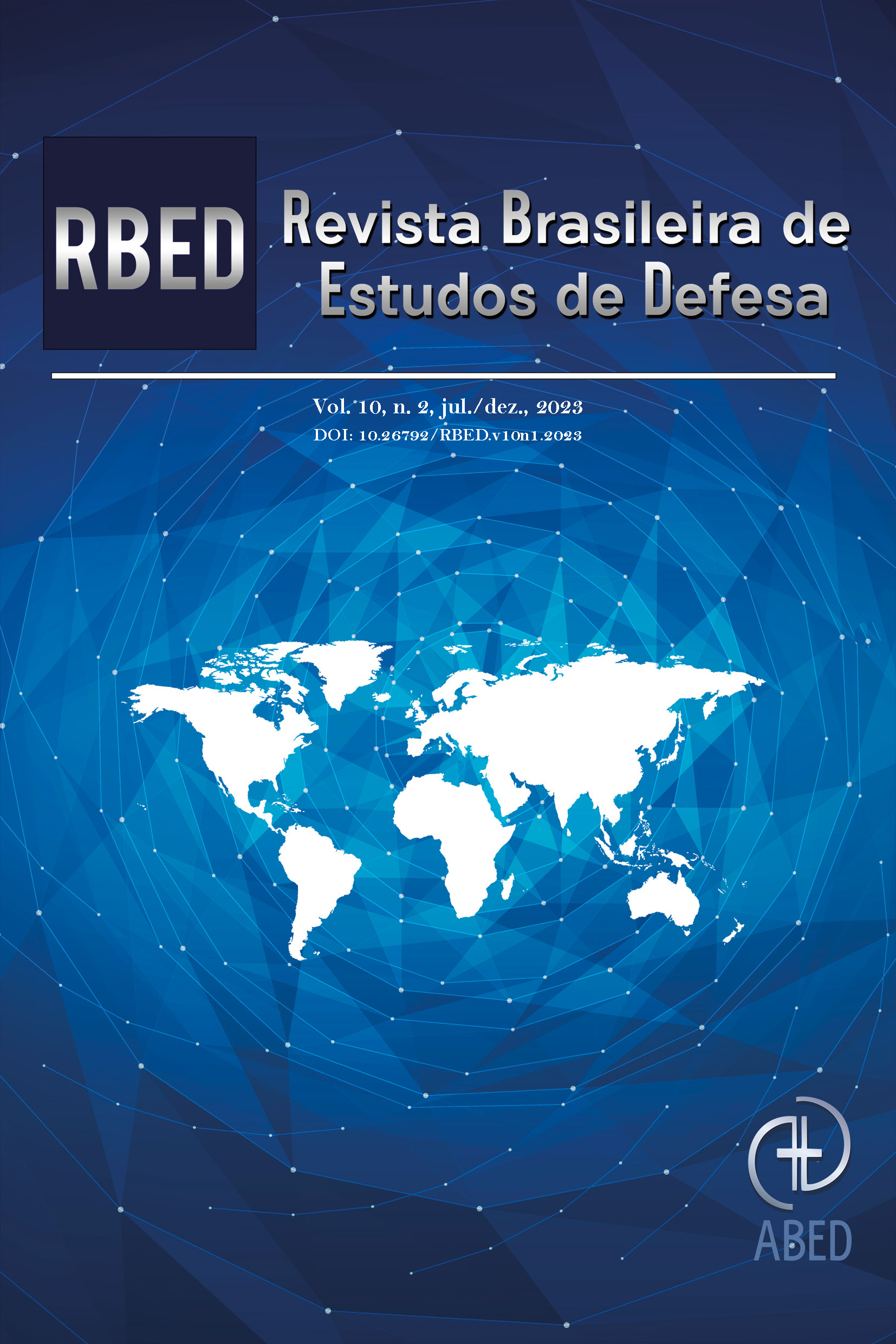The Amazon and the relationship with defense policies: the silencing of the Amazonians by the Brazilian state
DOI:
https://doi.org/10.26792/rbed.v10i2.75324Abstract
This research aimed to analyze how the construction of an official Amazonian identity was influenced by National Defense Policies. What justifies the research is the possibility of contributing to the literature that addresses importante issues involving the Amazon and, in this case, highlighting a potencial dissociation between public policies, with a focus on the National Defense Policy, and what shoud be the real interests and the real identity of th Amazon. The theoretical basis that supported this research is centered on the concept of Security, focusing on the Theory of Feminist Security Studies and the Realist Theory. We sought to understand how the different theoretical perspectives contribute to understanding the image and identity of the object os study delimited here, that is, the Braziliam Amazon. The conclusion points to the existence of a dichotomy between the official thinking and the thinking and reality of the people who live in that region. In this analysis, the understanding of this dichotomy and differente realities had the fundamental contribution of the Theory of Feminist Security Studies, whose lens allowed us to visualize insecurities of peoples and social groups in the Amazon.
Downloads
Downloads
Published
How to Cite
Issue
Section
License
Copyright (c) 2024 Marcio Rocha , Isabella

This work is licensed under a Creative Commons Attribution 4.0 International License.
Autores que publicam nesta revista concordam com os seguintes termos:1) Autores mantêm os direitos autorais e concedem à revista o direito de primeira publicação, com o trabalho simultaneamente licenciado sob a Licença Creative Commons Attribution que permite o compartilhamento do trabalho com reconhecimento da autoria e publicação inicial nesta revista.
2) Autores têm autorização para assumir contratos adicionais separadamente, para distribuição não-exclusiva da versão do trabalho publicada nesta revista (ex.: publicar em repositório institucional ou como capítulo de livro), com reconhecimento de autoria e publicação inicial nesta revista.
3) Autores têm permissão e são estimulados a publicar e distribuir seu trabalho online (ex.: em repositórios institucionais ou na sua página pessoal) a qualquer ponto antes ou durante o processo editorial, já que isso pode gerar alterações produtivas, bem como aumentar o impacto e a citação do trabalho publicado (Veja O Efeito do Acesso Livre).





